Adhesives are used in countless work applications for fastening, binding, and joining materials together. In scientific terms, any substance that can hold materials together in a useful way through surface attachment that prevents separation is an adhesive. Read More…
Master Bond formulates high quality adhesive systems to help engineers meet specific requirements for their bonding, sealing, coating and encapsulation applications. The product line consists of epoxies, silicones, UV curable and LED curable systems that feature outstanding performance properties.
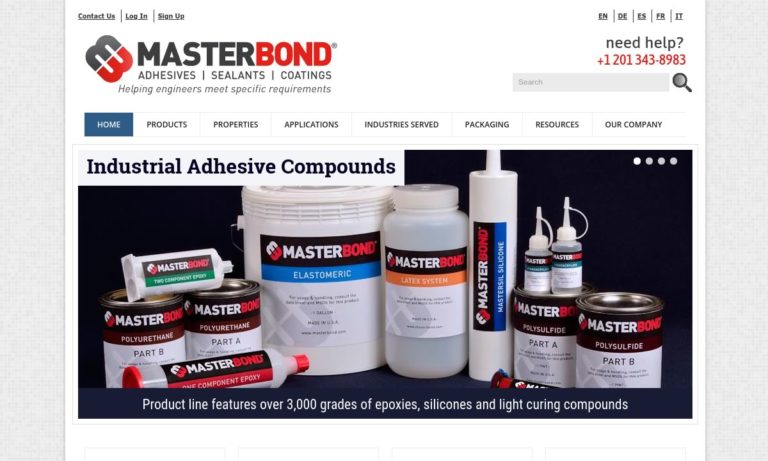
We are a leading manufacturer of hot melts, water-based adhesives, cohesives, and Dextin.. We work to make sure that all of our customers are satisfied and get exactly what they need! From Automotive to Paper Converting or nearly any conceivable application, we are the adhesive solutions company. We put you and your company first! For more information, give us a call today!
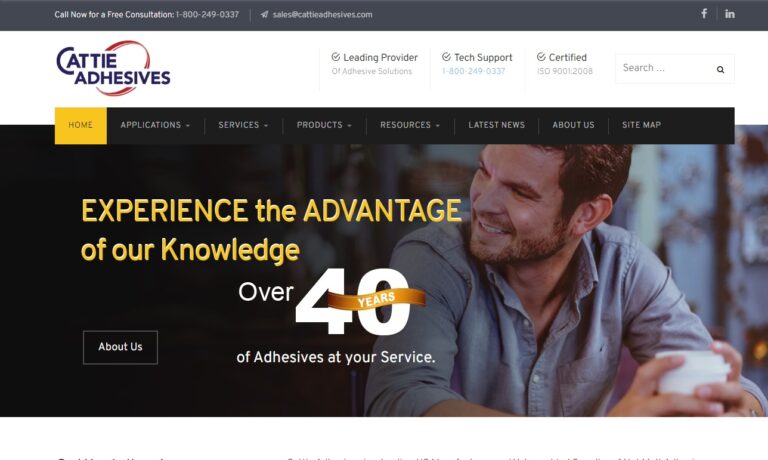
We hold North American manufacturing together with our adhesives! We have presences in Seattle, Portland, Spokane, Houston, Dallas, Tulsa, Chicago and many others so that we will be where you need us, always! Our motto states that “We strive for insanely happy customers,” and that’s exactly what the kind of commitment to excellence that we will bring to you. For more information on what we...
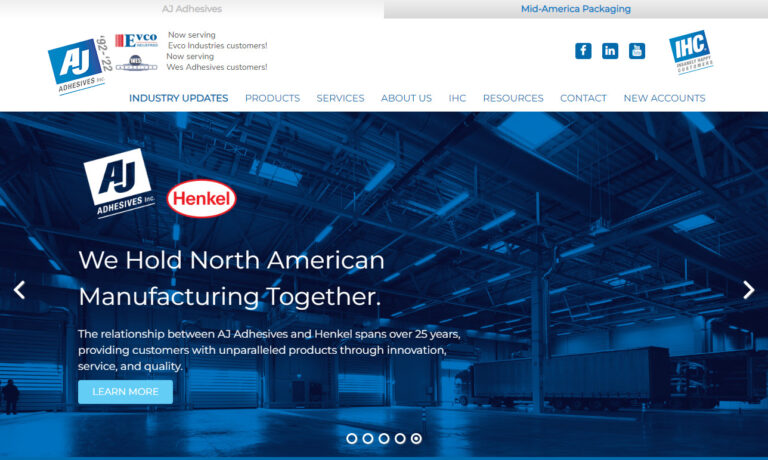
Here at L.D. Davis Industries we manufacture outstanding adhesive products and we put a focus on our customers’ needs. Our company offers eco-friendly adhesives and we work hard to remain on the forefront of our industry. All of these products are extensively tested and it is our mission to exceed your expectations. If you would like more information then please give us a call today!
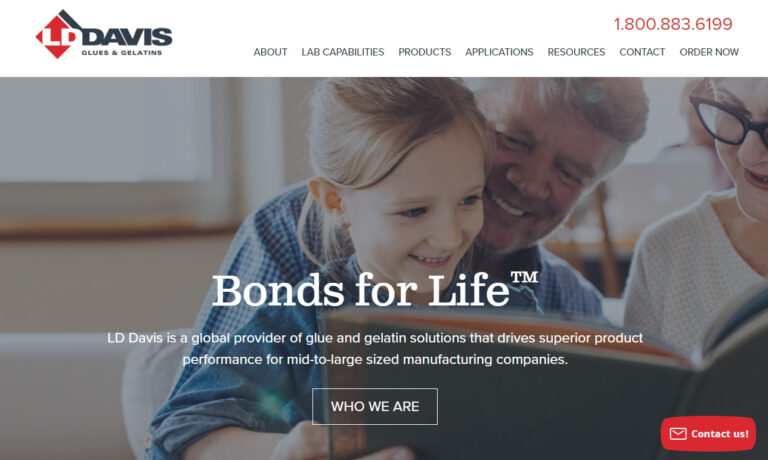
United Surface Preparation is a distributor of high-performance adhesives. Our product line consists of innovative epoxies, hot melt, spray adhesives, and applicators. Additional services include rental equipment, tool repair, and preventive maintenance. For a more complete list of our products and services, contact us today. A representative will be more than happy to assist you.
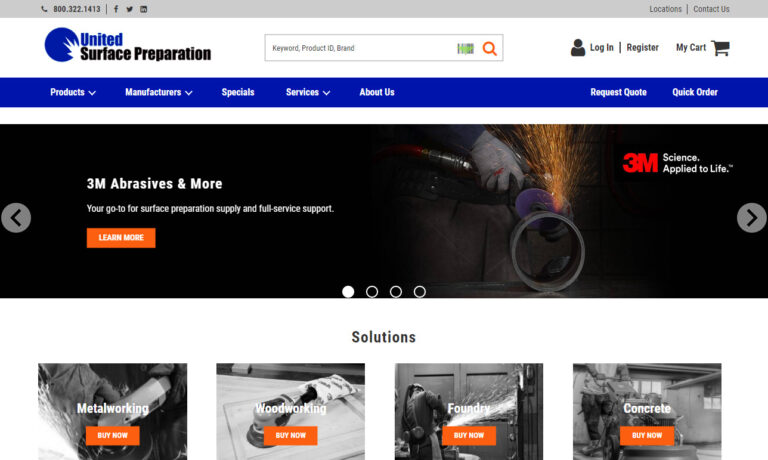
More Industrial Adhesive Manufacturers
More commonly, the term, adhesive, is frequently used to describe any organic material that creates an adhesive bond; cement, glue, and paste are all considered to be adhesives.
Industrial adhesives are specifically employed in industrial applications. Some common industrial adhesives are acrylic, epoxy, hot melt, polyurethane, silicone, thermoset, and UV curing adhesives, as well as industrial sealants.
What are Industrial Adhesives?
Industrial adhesives are chemical substances, both organic and inorganic, which are employed to link components. They are chemical compounds that are used to bind parts together. Industrial adhesives are most commonly used for industrial fastening applications. Industrial sealants are used to close gaps between seams or on surfaces, confine liquids, stop leaks, and stop undesired materials from getting inside important components. Industrial, or engineering, adhesives are integrated into a manufacturing process to safely bond critical pieces together. They can lower manufacturing costs over other parts assembly processes and materials while raising assembly quality through stronger bonds with no exposed fasteners.
Types of Industrial Adhesives
There are many types of industrial adhesives and they can be categorized by their composition or other characteristics. Further classification is also available based on the adhesive's cure method, or the chemical reaction it undergoes to harden and hold another item in place. Industrial adhesives most frequently used in industry include:
Resins
Resins are a class of polymer with synthetic origins. Their ability to be remolded at high temperatures and their inability to be remolded after the curing process depends on whether they are thermosetting (substances that set when heated) or thermoplastic (substances that set at “room” temperatures) forms of glue.

Acrylics
Contrary to other forms of adhesives, acrylic adhesives take some time to cure and set. The bonding property of acrylic adhesives is produced by a unique method that involves mixing together two separate components. There are both solvent and emulsion varieties of acrylic adhesives, both of which are utilized in construction.
Hot Melt
Hot melt adhesives enable on-demand adhesion and may be classified into one of two categories. High-temperature hot melt glue begins to melt at 195° C/380° F and is typically used in industrial applications. Low-temperature hot melt begins to melt around 130° C/260° F and is used for crafting. Regardless of the category it may fall under, hot melt adhesives have a great bonding ability and, once heated, may adhere to materials very quickly. One of the best things about hot melt adhesives is that they can be quickly fixed and reapplied if the user makes a mistake during their initial application.

Spray
The application of contact spray enables the temporary or permanent bonding of various objects. Spray adhesive is waterproof and transparent, and it may be applied to irregular and porous surfaces. Contact sprays are adaptable and stain-free. They are regarded as environmentally beneficial because they don't include any substances that have been chlorinated.

Epoxy Adhesives
Epoxy adhesives are widely utilized in some industries, including the automotive and aerospace sectors; they have a quick cure time and form a bond strong enough to connect concrete surfaces. In addition, epoxy adhesives are employed in the production of plywood to unite the thin layers of "plies" together.

Choosing the Right Industrial Adhesive
Below are some of the important considerations to keep in mind while choosing the right industrial adhesive:
- Environmental factors, including ambient temperature (minimum and maximum), moisture content, UV exposure, exposure to chemicals such as detergents or acids, and dust, may have an impact on their bonding quality.
- What is the adhesive’s stress compatibility or tensile strength (the maximum stress it can endure before breaking its bond)? What stresses (permanent load, vibration, shock, shear, bending, etc.) will this adhesive experience?
- The working time, or the period of time during which the pieces being glued together can be moved around, and the final setting time, or the period of time before the assembly can be used normally, must also be considered.
- It must "adhere" to the standards set to be used for a specific application based on its adhesive strength (ability to bond surfaces together), tensile strength, working and setting times, etc.

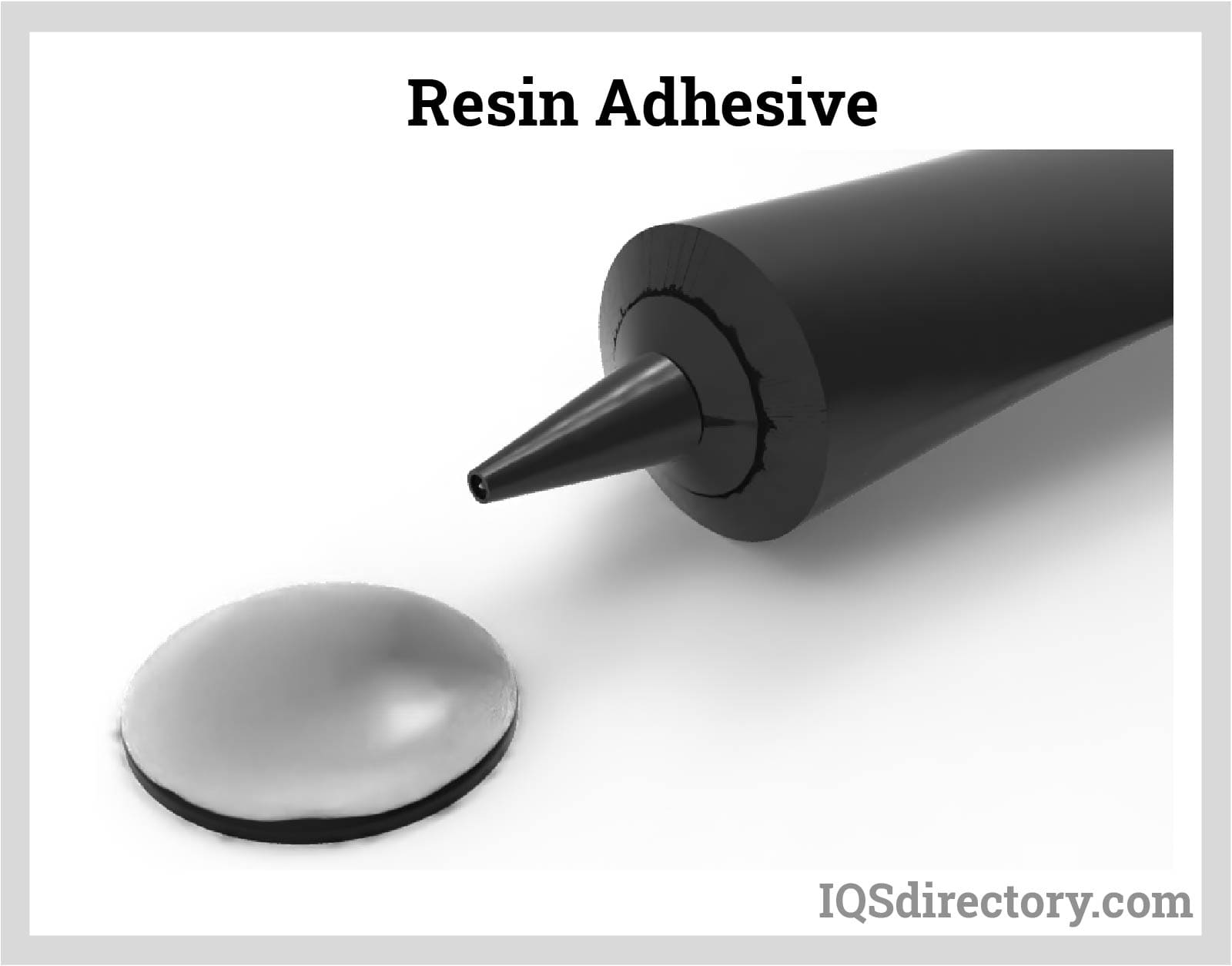
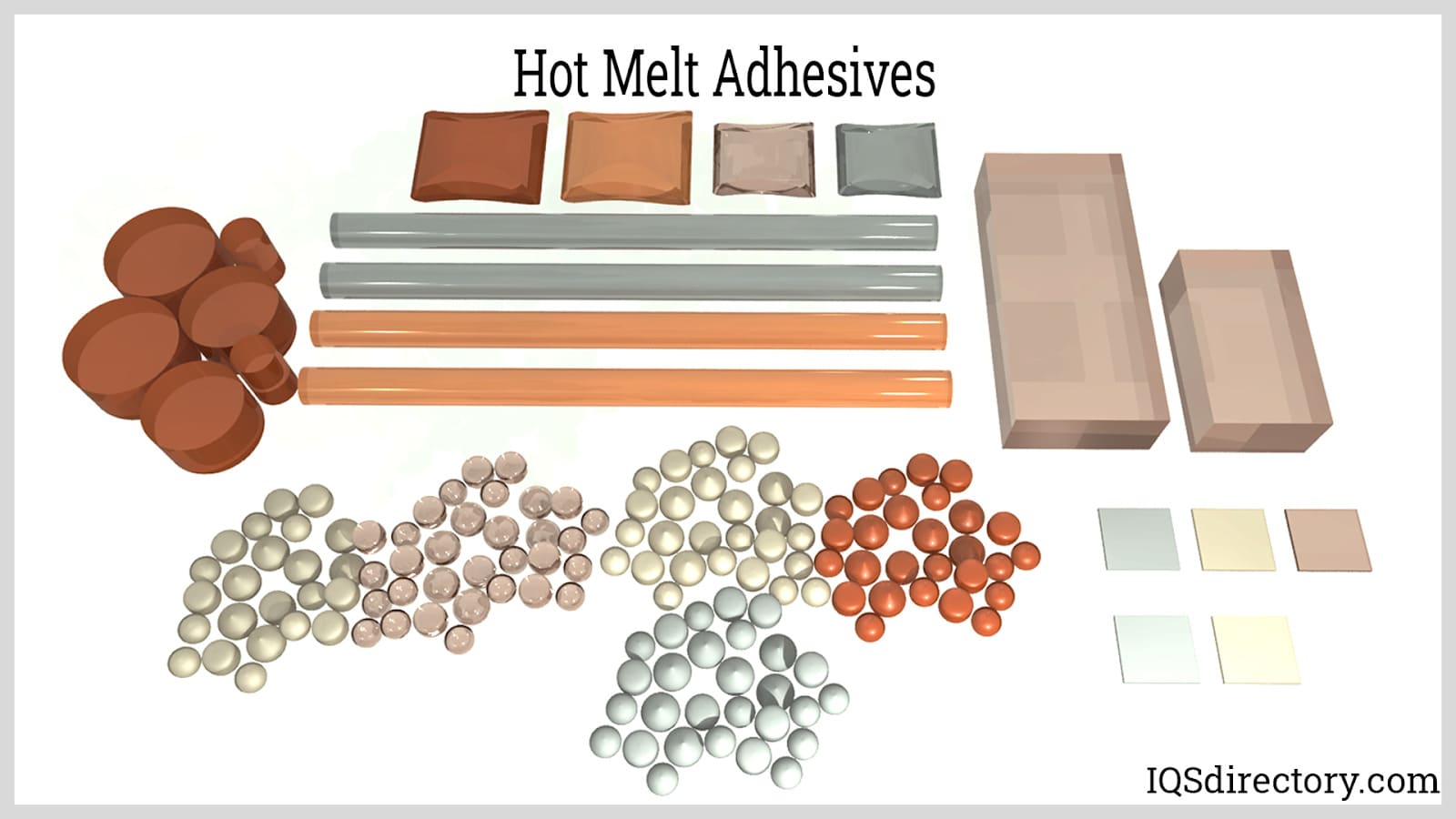
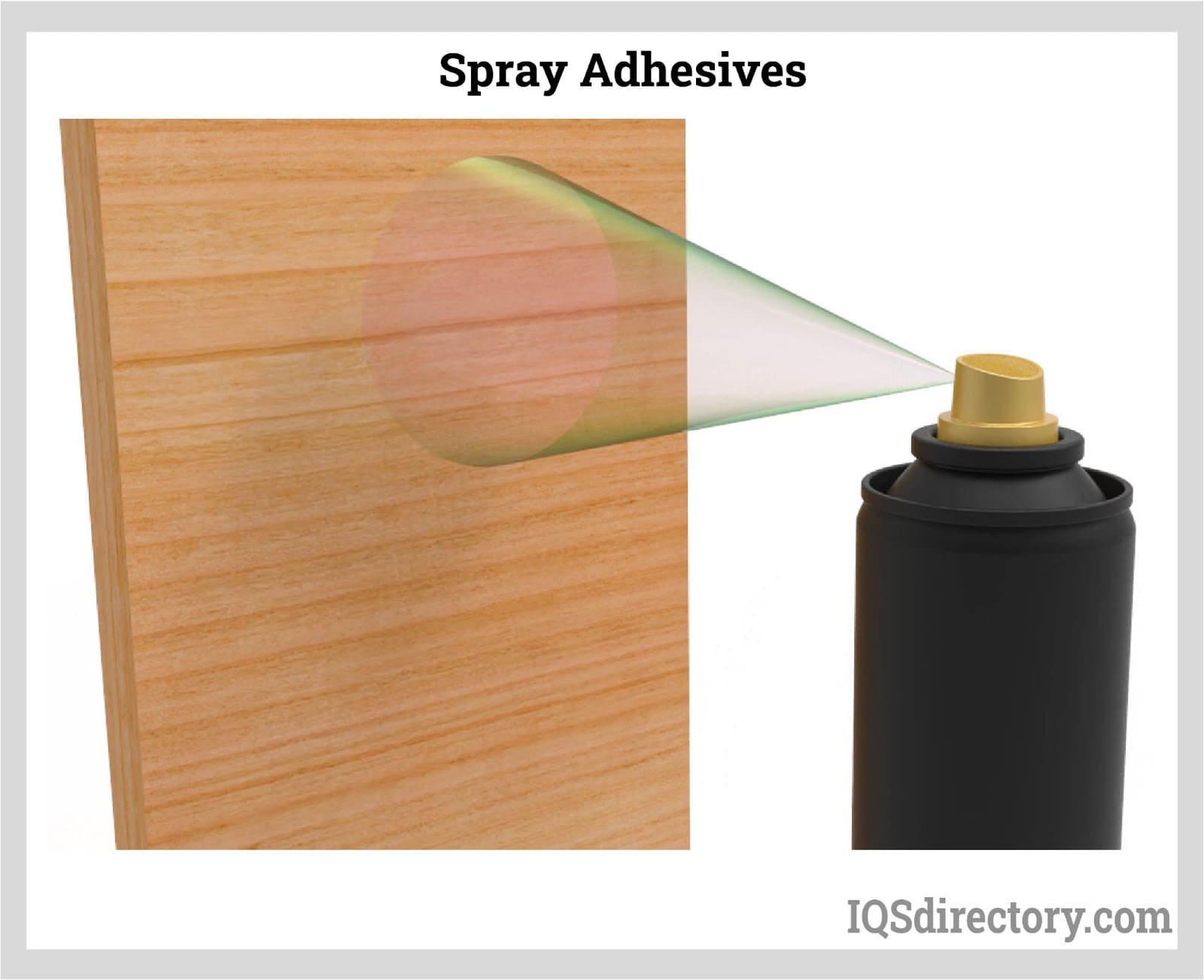
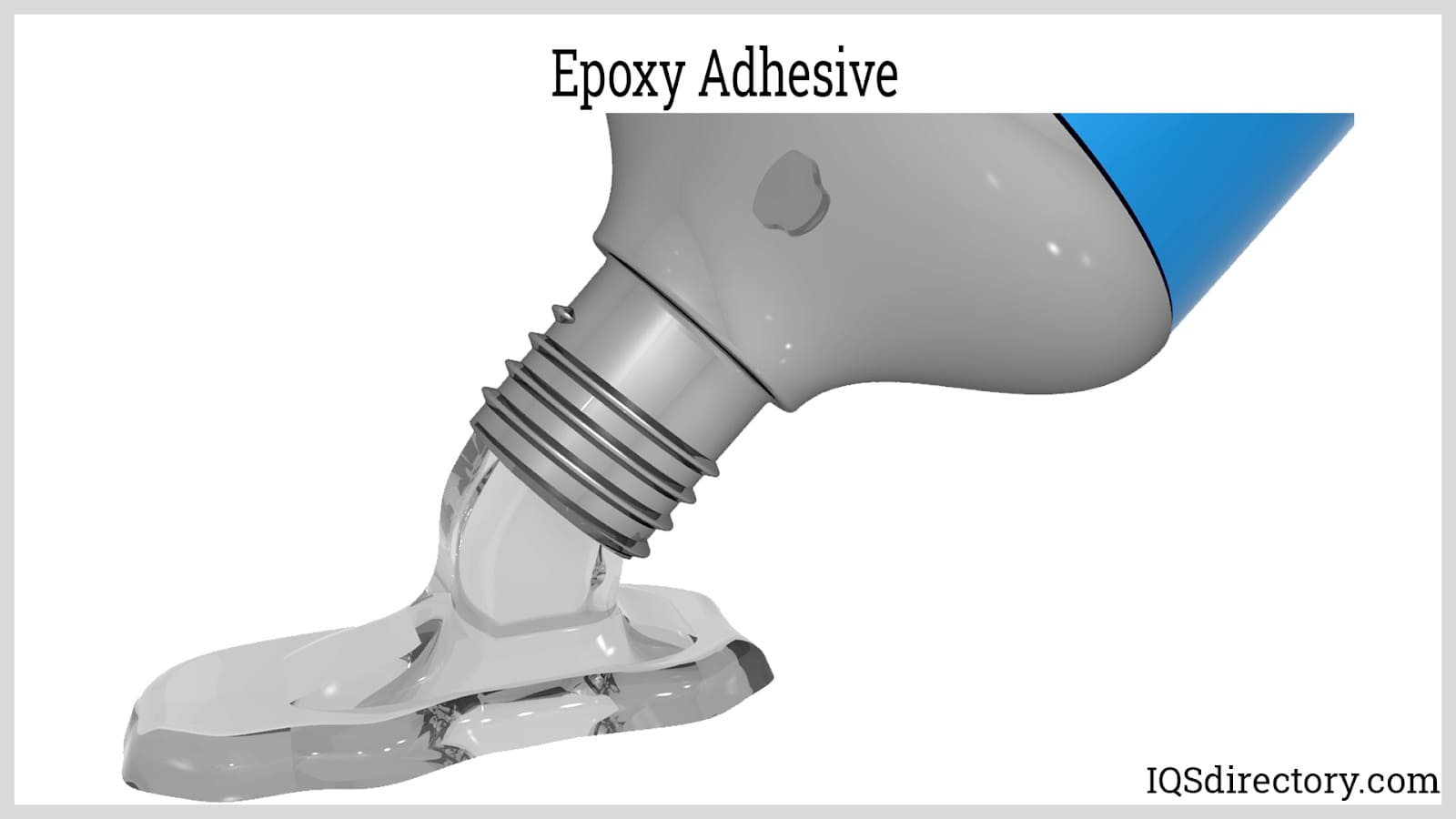

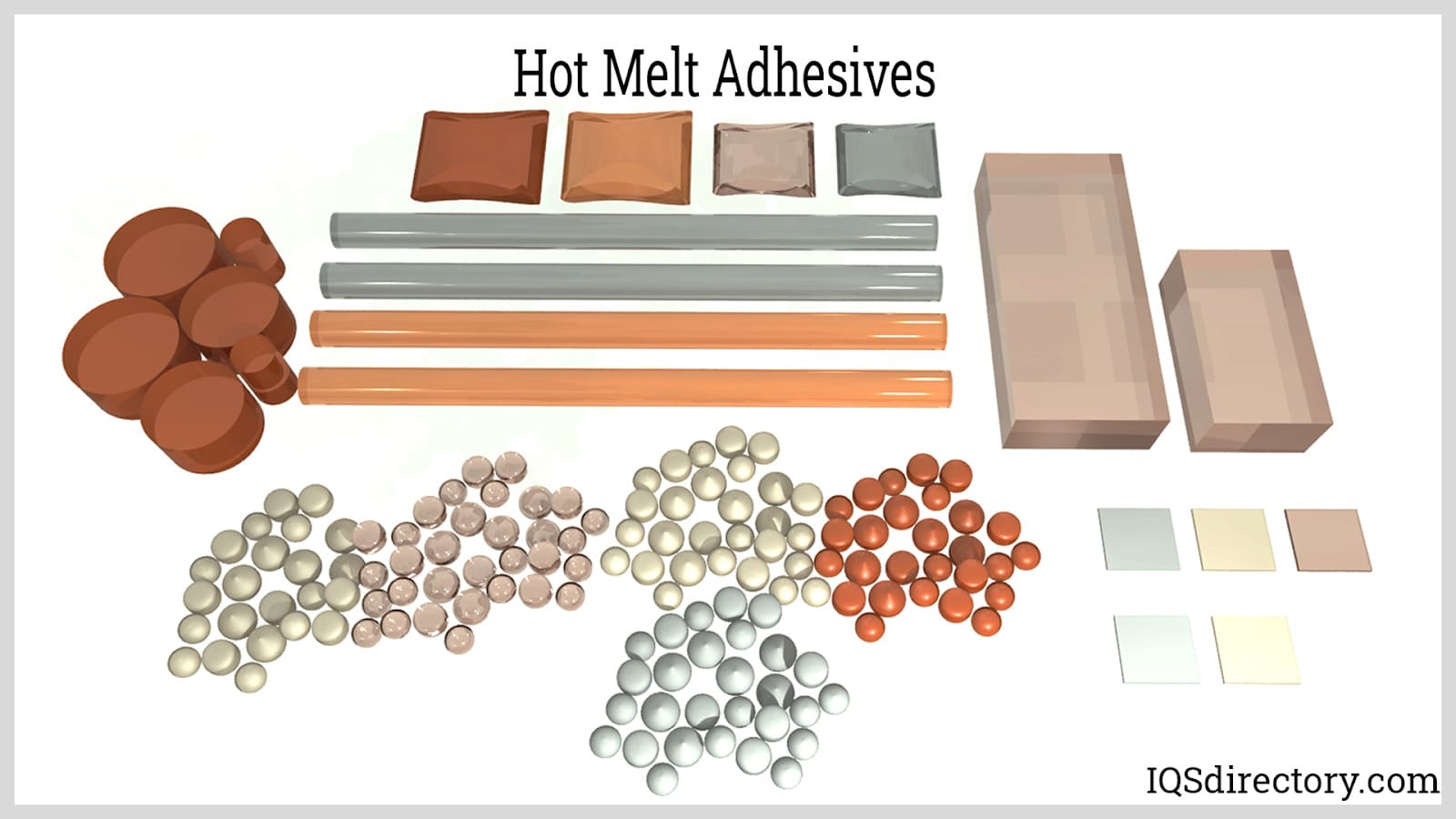
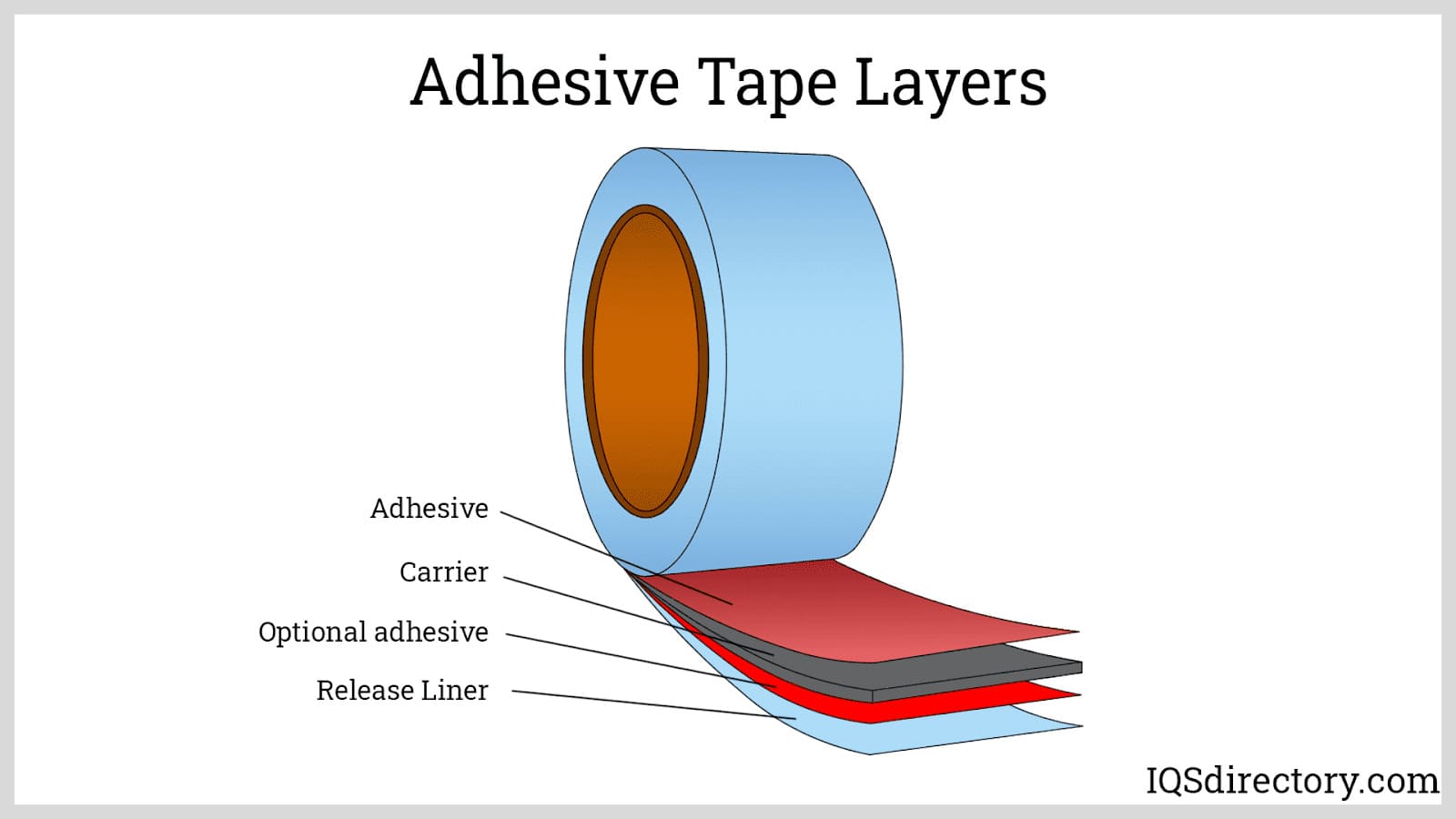
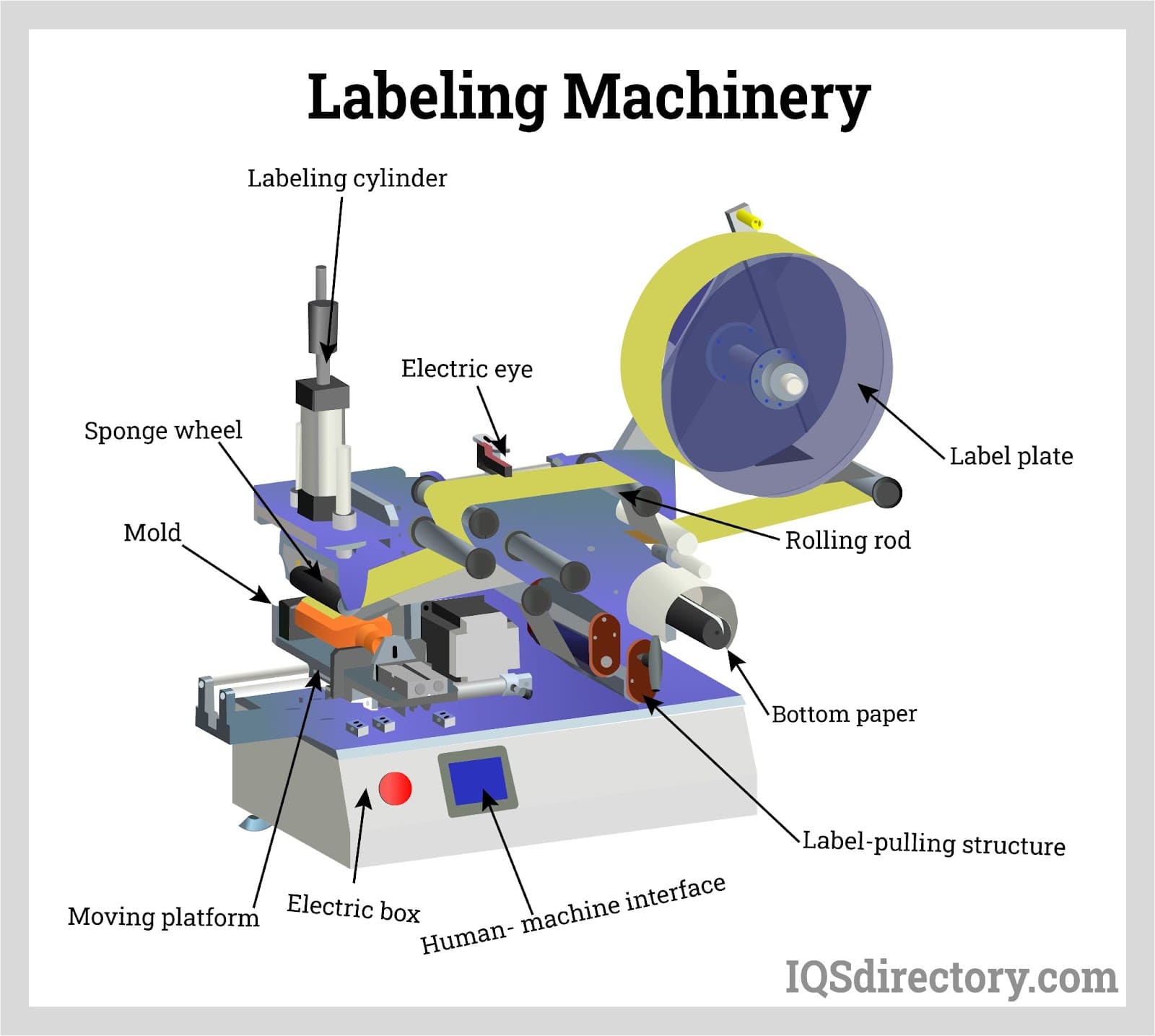
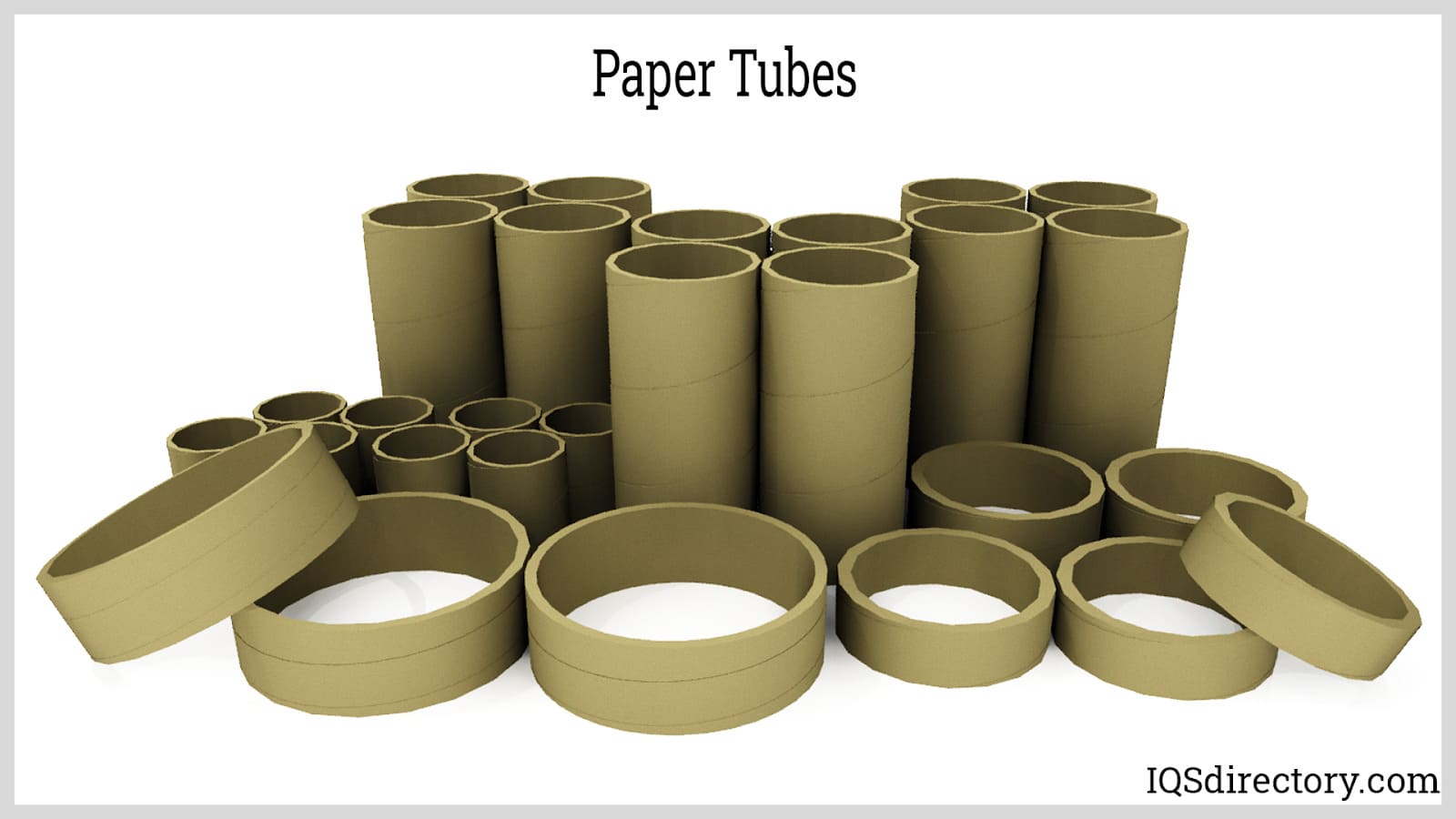
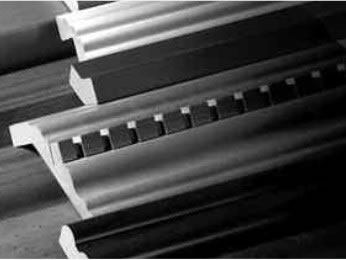 Adhesives
Adhesives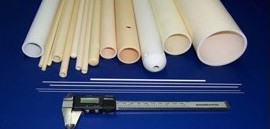 Alumina Ceramic
Alumina Ceramic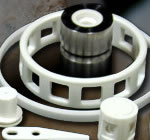 Ceramic
Ceramic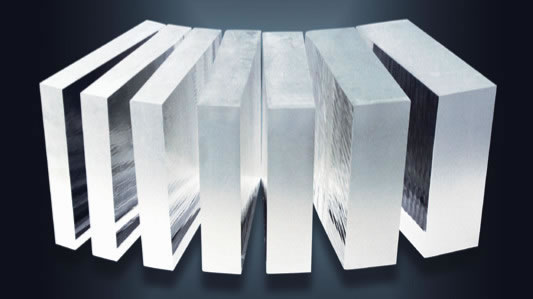 Glass
Glass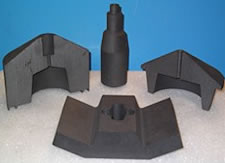 Graphite
Graphite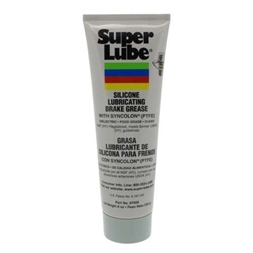 Lubricants
Lubricants Castings & Forgings
Castings & Forgings Bulk Material Handling
Bulk Material Handling Electrical & Electronic Components
Electrical & Electronic Components Flow Instrumentation
Flow Instrumentation Hardware
Hardware Material Handling Equipment
Material Handling Equipment Metal Cutting Services
Metal Cutting Services Metal Forming Services
Metal Forming Services Metal Suppliers
Metal Suppliers Motion Control Products
Motion Control Products Plant & Facility Equipment
Plant & Facility Equipment Plant & Facility Supplies
Plant & Facility Supplies Plastic Molding Processes
Plastic Molding Processes Pumps & Valves
Pumps & Valves Recycling Equipment
Recycling Equipment Rubber Products & Services
Rubber Products & Services